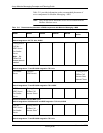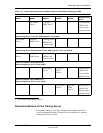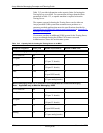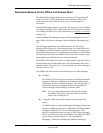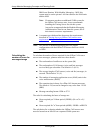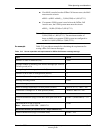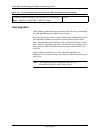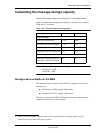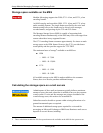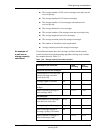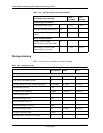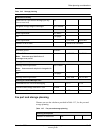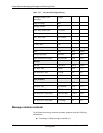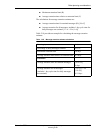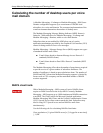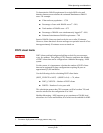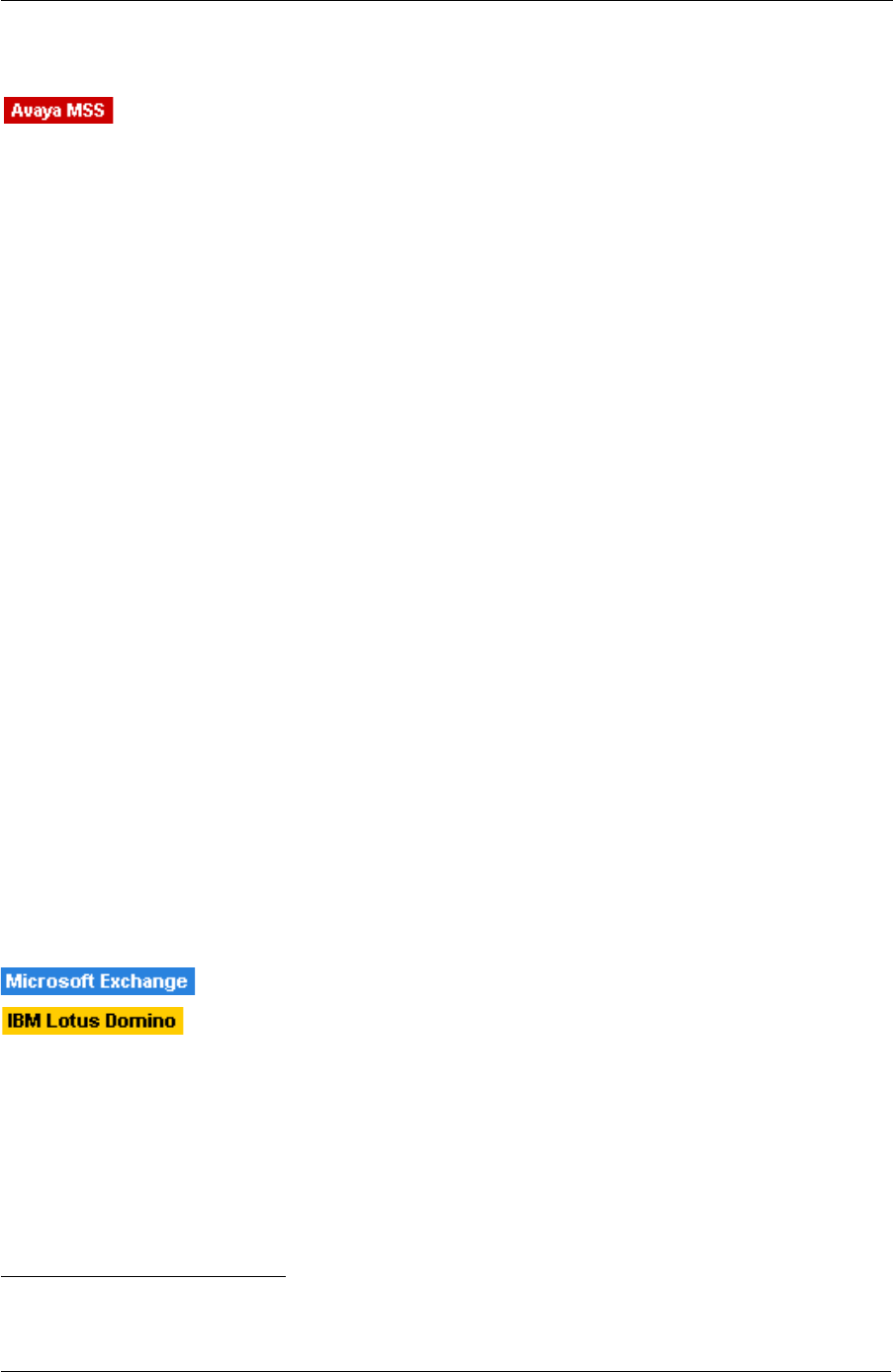
Avaya Modular Messaging Concepts and Planning Guide
13-14 November 2004
Avaya Modular Messaging Concepts and
Planning Guide
Storage space available on the MSS
Modular Messaging supports the GSM, G.711 A-law, and G.711 µ-law
encoding formats.
An MAS can play and record the GSM, G.711 A-law, and G.711 µ-law
audio encoding formats. The single format specified by the voice mail
domain setting refers to the format used to record voice messages,
recorded names, and greetings by the TUI and GUI clients.
The Message Storage Server (MSS) is capable of supporting both
encoding formats simultaneously, as the MSS may receive messages from
remote subscribers in any supported format.
The G.711 encoding format consumes approximately five times as much
storage space as the GSM format. However, the G.711 provides better
sound quality and also provides support for TTY/TDD.
The maximum hours of storage
2
available on an MSS are:
! GSM
— MSS—S: 7,500
—MSS—H: 15,000
! G. 7 11
— MSS—S: 1,500
— MSS—H: 3,000
All available storage on the MSS is made available to the customer.
Hence, there is no need to purchase additional storage.
Calculating the storage space on e-mail servers
Administrators of the e-mail environment typically define a maximum
amount of space that each subscriber is entitled to have on the corporate
e-mail system. If voice and fax messages are going to be added to the
e-mail message store, this needs to be accounted for.
Subscribers need to be able to operate within existing allocations or be
granted incremental space as required.
The amount of additional storage space required for voice and fax
messaging on Microsoft Exchange or IBM Lotus Domino e-mail servers
depends on several factors, including:
2. These calculations include the 20% free space that must be available on the MSS for the system to run.



